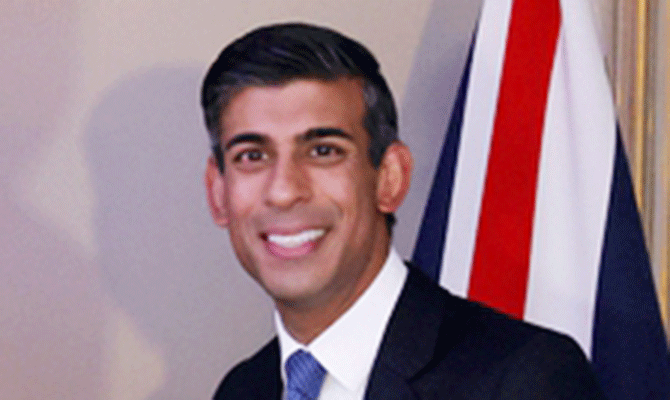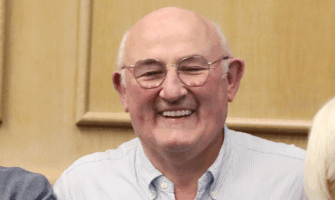
Rishi Sunak
Michelle O’Neill travelled to Washington on June 4, two days before British prime minister Rishi Sunak – but they were on different missions. Sunak was there to be seen to be meeting the US President for the TV news in Britain and to shake hands on the largely meaningless Atlantic Declaration. That was the best he could get to cover the British government’s failure to conclude the trade deal it had promised in its 2019 manifesto. It’s not going to happen before next year’s British general election.
Michelle O’Neill was there to ensure that the impasse in the north was raised with Sunak. There was no mention of it in British press releases but the north was listed in the White House agenda for Sunak’s meeting. No one doubts that Biden raised it with Sunak because the former takes a personal interest in politics in the north. After all, he told a Democratic Party meeting in New York in May that he visited Ireland in April “to make sure the Brits didn’t screw around” – a remark that caused a sharp intake of breath in Whitehall, pearl clutching in some British newspaper editorials and outrage in others that are strongly supportive of the Conservatives.
Accounts of Michelle O’Neill’s visit expressed some puzzlement at her request for the US government to put pressure on Sunak to restore the Stormont executive. Surely the British have been exerting pressure on the DUP by cutting the north’s budget in vital areas such as health and education and hoping the DUP will be blamed? What more can they do, people ask.
Well, Sinn Féin thinks quite a lot more. Since the Windsor Framework settled the conflict with the EU about the Northern Irish Protocol – to the dissatisfaction of the DUP – the British government has been indulging the party in secret negotiations.
The DUP is demanding legislation that will guarantee its place in the UK’s internal market and, ideally, some wording to reassert the primacy of the Act of Union, which the protocol overrode.
Initially northern secretary Chris Heaton-Harris, not a man intimately acquainted with the north’s complexities, stated the British would amend the 1998 Northern Ireland Act to reassure the DUP.
His casual ignorance of the importance of the act, which codifies the Good Friday Agreement, caused conniptions in Dublin and among republicans (see The Phoenix 10/3/23). The British still continued to talk in this vein until a stern warning from SF chair Declan Kearney in An Phoblacht on April 28 (see The Phoenix 5/5/23).
Nonetheless, negotiations with the DUP still continue. They make Dublin nervous. Taoiseach Leo Varadkar met Sunak in Moldova at a European leaders summit on June 1 and asked to be kept informed. He said: “What is publicly known is that the DUP is seeking some assurances about their place in the UK. We’ve said we would like to be aware of that so that we’re not caught off guard or by surprise and that there’s nothing that would concern us in terms of the integrity of the Good Friday Agreement.”
Michelle O’Neill carried that message to Washington on June 4. There she met senate majority leader Chuck Schumer and house speaker Kevin McCarthy, as well as senior figures in the National Security Council, which is headed by Jake Sullivan, a close confidant of Biden.
In all cases she was pushing at an open door, not only because of traditional access to Irish-America but also because the DUP didn’t endear itself to anyone during the St Patrick’s Day jamboree in Washington. DUP leader Jeffrey Donaldson responded to Schumer’s suggestions about the north by telling him to read a history book.
At the end of May, the DUP leader sounded hopeful about progress, saying he expected some outcome by the middle of June. However, if it’s legislation, it will not be enacted before Christmas. Meanwhile Sunak has his hands full with three by-elections engineered by his bitter enemy Johnson. Introducing controversial legislation must be well down his list.


















